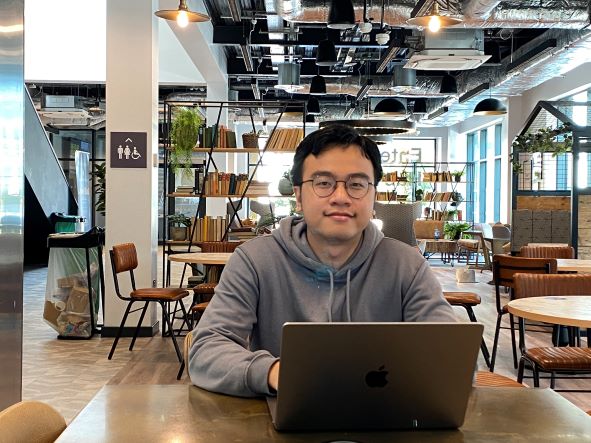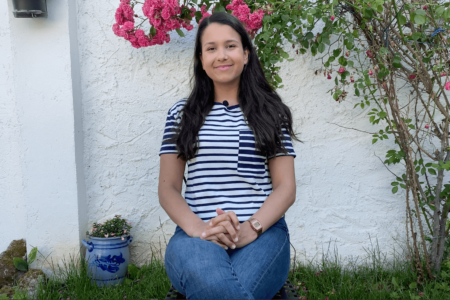
Law students would know that learning within the confines of a classroom isn’t enough to make it as a successful lawyer. They would also need to supplement their knowledge by honing their abilities outside of campus via activities such as working in a legal clinic to taking part in mooting activities, to name a few.
Currently pursuing his final year of LLB at the University of West England as a transfer student, Nigel Cledwyn Motinius is making full use of his time abroad. This includes meeting people to build his network and taking part in global competitions and challenges that cover prevalent topics and issues affecting the world today.
Recently, the 22-year-old took part in the “Sustainable Investment Challenge 2022″ — a global investment competition organised by Italian bank Banca Generali — and won first place. He beat a whopping 13,750 participants from 95 countries — despite not having any knowledge in finance and economics.
That’s not all — Motinius, who is from Sabah, a state on the northern end of Borneo — also took part in the international law firm Slaughter and May’s innovation competition and won third place.
We caught up with Motinius to learn more about his recent achievements and law education at the University of West England:
Congratulations on your recent win in the Sustainable Investment Challenge 2022! Tell us how it all started.
Thank you. I joined the competition at the last minute because I wasn’t aware there was a sustainable investing competition in the first place. I think I was getting bored one day after class and looked around the internet for a challenge.
Lo and behold there it was, the Reply Sustainable Investment 2022. To be honest, I did not expect to win. The competition was initially just a litmus paper to test the investment knowledge I’ve accumulated over the years.
How did you prepare for the competition?
A lot of readings on governments, organisations, and NGO reports. I needed to familiarise myself with the competition’s requirement which was getting the most returns on sustainable investment. The actions I took in the competition were based on a series of self-learned and taught lessons I’ve gotten over the years.
I didn’t win the competition because I read a bunch of books for the competition or was smart at predicting market movements — it took me years of learning to be confident enough to join investing competitions such as these. So don’t feel pressured to be good at something immediately.

“Law, to me, is a logical choice because I can earn a living and easily convert it into a skill for humanitarian purposes.” Source: Nigel Cledwyn Motinius
Did you face any challenges throughout the competition? How did you overcome them?
Of course, the competition was a challenge from the beginning to the end. One challenging moment in the competition was when my portfolio’s profits were cut in half due to the US market tanking.
Essentially, what happened was I had a strategy, but it was very sensitive to external influences. I went back to the drawing board and learned from my strategy’s failings. Altered the strategy to get lower returns but with much lesser volatility. And I guess it worked. I came into the competition knowing that my strategy isn’t perfect, so I didn’t hesitate to alter some aspects of it.
What sparked your interest in law and why did you decide to study at the University of West England?
I was born and raised in Malaysia, a diverse cultural melting pot. I come from a small group of minorities in my country where legal education is not as prevalent.
I’ve constantly heard about community problems, which kind of shaped my mindset growing up. A lot of people need help, so I wanted a tangible skill that I could use to contribute to my people as well as others in the community. Law, to me, is a logical choice because I can earn a living and easily convert it into a skill for humanitarian purposes.
After learning academic theories throughout my first and second years at HELP University’s law school, I wanted a challenge that tested my practical legal skills. That’s why I decided to leave the familiar and tropical warmth of home to study in the UK.
For why I chose the University of West England — it offers a Lawyering in Practise module that places students in the UWE Bristol Business Law Clinic. Here, we advise pro bono clients on legal issues using skills we’ve learned in class and on the go. There is a sense of purpose you can get when you contribute back to the community.
I highly recommend prospective students to seek these kinds of opportunities no matter which university they choose. These experiences provide different perspectives that make each of us special and unique.
Can you describe your experience at the University of West England so far?
Studying in a new country is a challenging experience — but very rewarding.
I’ve gained insights into things I would not have noticed back in Malaysia. At the University of West England, I learned how diverse people deal with their studies and how the discussions conducted are much more different than back home. It gave me a new perspective on people’s work ethics, teamwork skills and the confidence to work with people from different countries, cultures, and backgrounds. Plus, you get the bonus of living in a fun city.
Bristol is a lively city. I’m sure people would tell you it has good nightlife — and yes, I agree.
There are many places to go in the morning and afternoon too. You can lounge around Castle Park or grab a drink in one of the restaurants near the waterfront. Bristol is big enough to explore and the right size to build a sense of familiarity, which you would miss when travelling to other places.
What has been your most memorable class at the University of West England, and why?
During one of our reflection sessions for the legal clinic, we discussed our perceived personal limitations and focused on how we could improve. The instructor brought up the topic of comfort zones. It’s a simple concept, but it has been very effective in getting me to take steps forward to reach my goals. Basically, there are three levels — a comfort zone where you’re pretty much good at what you’re doing, but there is little growth; a learning zone where you start to experiment and grow; and finally, the panic zone, where you get nothing done.
This model has a lot of variation but is a brilliant concept. I started planning and going to events that I would normally not attend alone just so I could learn and grow.
What are your plans once you graduate?
For now, I’m planning on staying in the UK. I recently joined a legal tech start-up, and I’m looking forward to helping them implement their solutions for law firms. In the future, I want to utilise my legal education and help companies grow wherever they are in the world. There are more lessons for me to learn in the UK and more successes that I want to uncover. Although I miss home dearly, it’s not yet time to go home.
Do you have any advice for students who wish to pursue an education in law?
If you want to make law interesting for you, you can combine your interest with legal education. Skills taught in law schools such as researching, analysis, presenting arguments and etc are applicable in a large swath of fields. So don’t fall into the trap of thinking you’re only confined to the modules you study — go and align your interests with law. Whether it’s sports, films, finance etc, there is always a connection between your legal education and your interest. You can move pretty much into any industry after law school.










